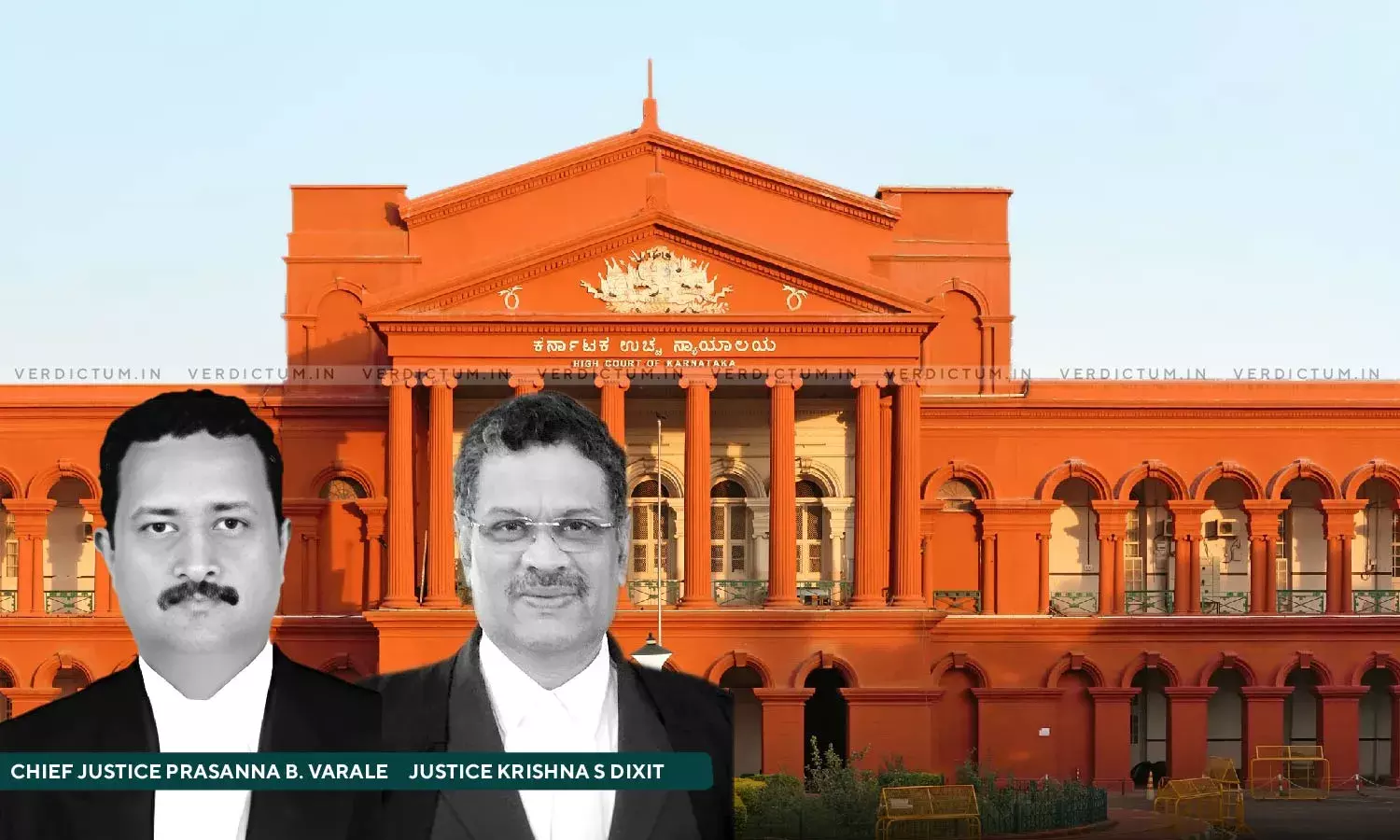State Is Custodian Of Prosecution’s Rights In Criminal Cases, It Is For State To Prefer Appeal Against Acquittal Order: Karnataka HC

The Karnataka High Court has observed that the State is custodian of prosecution’s rights in criminal cases and that it is for the State to prefer an appeal against the acquittal order.
The Court was deciding a writ petition seeking direction against the respondents to conduct a fresh investigation through CBI (Central Bureau of Investigation) or any other premier independent investigation agency or by forming an (SIT) Special Investigation Team by considering the representations of the petitioners to ascertain the actual criminals in connection with crime registered and to issue any other direction and guidelines regarding the investigation during golden hours after the crime in case like rape, murder etc.
A Division Bench comprising Chief Justice Prasanna B. Varale and Justice Krishna S. Dixit said, “There is yet another reason for us to decline interference in the matter: ordinarily, in criminal cases, it is the State which is the custodian of prosecutionary rights, subject to all just exceptions, and therefore, it is for the State to prefer the appeal against the acquittal order. It is not that in the event, State decides not to prefer one, that will be end of the road.”
Senior Advocate Arun Shyam appeared on behalf of the petitioners while DSG Shanthi Bhushan H. and AGA Niloufer Akbar appeared on behalf of the respondents.
Brief Facts -
A minor girl was raped and murdered and her father lodged a missing complaint. The dead body of the victim was discovered under a tree in a forest and the police registered a case for the offences punishable under Sections 376 and 302 of Indian Penal Code. The investigation was handed to the Crime Investigation Department of the State vide Government Order and a Final Report was submitted to the Trial Court. However, at the instance of local MLA and others, the State Government entrusted the matter to CBI for investigation and the CBI registered FIR for the same offences. The Special Court on the application filed under Section 319 of CrPC had summoned the said accused and this was challenged by the accused.
The victim’s father’s application filed under Section 173(8) of CrPC was allowed by the Trial Court which was challenged by the accused seeking a direction for a court monitored reinvestigation at the hands of respondent-CBI. Based on the final report, a special case was registered, charges were framed and trial was conducted. The Trial Court acquitted the accused and set him free. According to petitioners, this resulted into a lot of social unrest and public agitation for coercing the authorities to do justice to the deceased victim and her family by undertaking a de novo investigation. The petitioners claiming to be public spirited persons, knocked the doors of the court.
The High Court after hearing the contentions of the counsel noted, “We fail to understand as to how these petitioners can espouse the so called public interest in the matter or cause of the family of victim. None of the members of victim's family is arrayed as a party nor any explanation is offered for non-arraignment.”
The Court further noted that the remedial provisions availing to the victims or the aggrieved do obtain in the amended CrPC and the aggrieved persons can put the acquittal order in challenge.
“The victim (which includes family of the deceased) has an unconditional right of appeal and no leave of the court for the same is needed. In the absence of victim, others also can avail certain remedies, of course with the leave of court”, added the Court.
Accordingly, the High Court dismissed the petition.
Cause Title- Girish Bharadwaj & Ors. v. The Union of India & Ors. (Neutral Citation: 2023:KHC:32508-DB)


